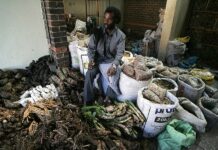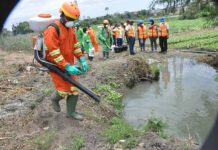A recent article by Wissink, H. (2023) titled “Sustainable Tourism for Local and Regional Development in South Africa: Unlocking Economic Potential through Responsible Tourism Strategies,” published in African Journal of Hospitality, Tourism and Leisure, shows that sustainable tourism can contribute to local and regional development in South Africa by generating economic growth, social empowerment, and environmental conservation.
“
Sustainable tourism in South Africa fosters economic growth, social empowerment, and environmental conservation, emphasizing responsible strategies and multi-stakeholder collaboration.– Wissink, H. 2023
This article explores the significance of promoting sustainable tourism for local and regional development in South Africa. By focusing on responsible tourism strategies, the study aims to highlight how these approaches can not only unlock the economic potential of the tourism sector but also ensure its long-term sustainability. The author delves into the concept and principles of sustainable tourism, which aim to balance economic development with environmental conservation and social well-being. The study further explores the impact of tourism on regional development and the need for a comprehensive theoretical framework to explain the relationship between them and the specific challenges and opportunities faced by developing nations like South Africa in achieving sustainable and inclusive development. The author navigates through the application of the Sustainable Development Theory (SDT) as a comprehensive framework for analyzing the interactions between tourism, the environment, the economy, and society.
How the Study was Conducted
The author employed 18 interviews with key stakeholders in the tourism industry, such as government officials, local communities, tourism operators, NGOs, and industry experts. The interviews aimed to gather insights, perspectives, and recommendations on responsible tourism strategies for local and regional development in South Africa. The author analyzed the interview data using thematic coding to identify common themes and subthemes emerging from the stakeholders’ responses. In addition, the study synthesised the findings to develop a comprehensive understanding of the challenges, opportunities, and recommendations for promoting sustainable tourism in South Africa.
What the Author Found
The author found that sustainable tourism can contribute to local and regional development in South Africa by generating economic growth, social empowerment, and environmental conservation. The author posit that responsible tourism strategies involve a multi-stakeholder approach, bringing together government bodies, tourism operators, local communities, conservation organizations, and visitors. The study found that stakeholder interviews revealed several challenges and opportunities for promoting sustainable tourism, such as community involvement, infrastructure development, cultural preservation, collaboration, and partnerships. The author further found that Sustainable Development Theory (SDT) provides a comprehensive framework for achieving balanced economic growth, social inclusion, and environmental sustainability in tourism development.
Why is this important?
Sustainable tourism aims to protect and conserve the environment, wildlife, and heritage of the destination, ensuring its long-term viability and attractiveness. Sustainable tourism involves and benefits local communities by creating employment opportunities, supporting local businesses, and enhancing their well-being and quality of life. Sustainable tourism contributes to local and regional economic development by diversifying the economy, increasing income and revenue, and attracting investment. By adopting responsible tourism strategies, South Africa can unlock the economic potential of its tourism industry while ensuring its sustainability and preserving its natural and cultural assets.
What the Authors Recommend
- The author recommends that various stakeholders, such as the government, local communities, tourism operators, and NGOs, should be involved in decision-making processes related to sustainable tourism development.
- The study suggests that stakeholders should encourage community ownership and participation in tourism initiatives, such as homestays and local tour guide services, to ensure that local perspectives and interests are considered and that communities benefit directly from tourism revenues.
- The author urge various stakeholders to provide training and education programs for local communities and tourism operators on sustainable tourism practices, such as environmental conservation, cultural preservation, and responsible business management.
- The author advocate investment in infrastructure development that supports sustainable tourism growth, such as transportation networks, accommodation facilities, and public amenities, while minimising environmental impacts and enhancing accessibility and quality of life for residents and visitors.
- The study urges various stakeholders to respect and promote local culture and heritage, such as traditions, arts, and crafts, and foster cultural exchange and appreciation among tourists and locals while avoiding cultural commodification and dilution.
- In addition, the study proposes that stakeholders should protect and conserve natural resources and biodiversity, such as national parks and marine reserves, and implement eco-friendly practices, such as waste management and resource conservation, to reduce the environmental footprint of tourism activities.
















 The African Research (AR) Index is a comprehensive scholarly directory and database focused explicitly on journal publishers that publish and disseminate African research.
The African Research (AR) Index is a comprehensive scholarly directory and database focused explicitly on journal publishers that publish and disseminate African research.

